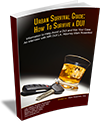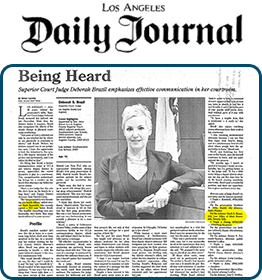Everyone has an individual idea about how a DUI will affect one’s life. Some people equate a driving under the influence charge to a minor traffic offense. They figure that a DUI charge can be dealt with by paying a fine, and then they will be able to move on with their lives. They don’t realize the tremendous ramifications or complications that can come with a DUI.
On the other hand, some people hold misconceptions that are at the opposite end of the spectrum: They think that being arrested for a DUI means the end of their lives. They believe that they are going to lose their jobs, go to jail, and be branded a criminal for eternity.
Somewhere in the middle of these points-of-view is the true meaning of a DUI. It is a very serious charge, but if handled properly, the consequences and penalties can be minimized, reduced, or possibly avoided all together. People can go on to having very successful and enjoyable lives with a DUI.
Every DUI Case Is Different
Every DUI case must be looked at individually. They are defended on a case-by-case basis. For each DUI case, it needs to be looked at as an individual person and as an individual situation. For a great number of my cases, my clients had not been driving as one would expect for a drunk driver. There was not significant swerving, lane-straddling, or anything like that. A great portion of people are stopped for minor vehicle code violations, like speeding or making a lane change without signaling. Some individuals may drive over a line, but it is likely to be a few inches over it. Often, it happens to be around 2:00 in the morning, and the officers are going to conduct an enforcement stop to try to find out what is going on with the driver.
Most of the time, my clients are not drunk driving, and there is a real question as to whether or not they are impaired. Instead, it may be that someone is tired because of having worked all day. The cause could be due to having an emotionally stressful time in one’s personal life. Even research shows that police officers are not very good at being able to tell the difference between somebody who is impaired from alcohol after having had a couple drinks and someone who is impaired from not getting enough sleep the previous night.
The behavior of people differs greatly when one is stopped or arrested for a DUI. Some appear emotionless. There are people who act cool and calm as if they have no real concern. Others become very emotional and basically have a breakdown. Those who react with intense emotions may even need medical treatment just for being stopped for a DUI.
DUIs and the sequence of events following a DUI can vary, but a lot of times, no real drunk driving has occurred; in other words, they are not impaired. They know what is going on. They want to give the best responses to officers’ questions in order to possibly help their situation. A lot of times people are mistaken about the science of alcohol and drinking. It’s not unusual for someone to tell an officer two beers were consumed, because people think that that’s a safe amount to drink prior to driving. People often push back the time the drinking occurred and say, “Well, I had those beers two hours ago,” thinking that this statement will explain the smell of alcohol and get them out of potential trouble. In reality, officers are trained to look for these clues or signs. Saying “I had two beers” is the most common answer given to an officer. In many situations, the next step is for the person to be asked to get out of the vehicle so an investigation for DUI can begin. At this point, trouble has begun.
In reality, it is often better for a driver to have been stopped leaving the bar or restaurant after recently having a drink. That may give us more of a defense than someone who had two drinks two hours ago. However, if a client has stated to police that the drinks were consumed two hours ago, then we can work around that as well. At that point, we will use experts to testify in court and present articles containing results concluded by scientific research. We can also explain results gathered using breath-testing equipment and blood-testing equipment as well.






 Personal Attention
Personal Attention Every criminal case is unique and no attorney can guarantee the outcome of a case. The information on this site is legal advertising and for general information only. Using this site, requesting books, information, consultations or communicating with Attorney Rosenfeld through its site does not form an attorney/client relationship.
Every criminal case is unique and no attorney can guarantee the outcome of a case. The information on this site is legal advertising and for general information only. Using this site, requesting books, information, consultations or communicating with Attorney Rosenfeld through its site does not form an attorney/client relationship.








